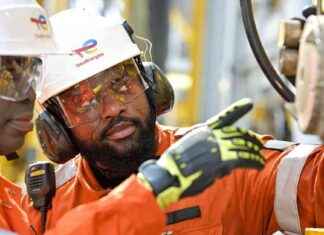He had admitted his guilt during a hearing which turned against him: the defense of Vincent Bolloré, indicted for acts of corruption in Togo, asked the Court of Cassation to cancel the procedure, Wednesday 11 October, considering his presumption of innocence violated. The billionaire has been indicted since 2018 for corruption of a foreign public official in the investigation into the award of management of the port of Lomé, between 2009 and 2011, and risks a trial before the Paris Criminal Court.
Seized since 2013, Parisian financial judges suspect the Bolloré group of having used the political consulting activities of its subsidiary Euro RSCG (now Havas) to fraudulently obtain management of the port of Lomé for the benefit of another of its subsidiaries, Bolloré Africa Logistics (formerly called SDV), at the time of Faure Gnassingbé’s campaign in the presidential election.
In 2021, Mr. Bolloré tried to avoid a long trial before the criminal court by requesting from the investigating judge and the national financial prosecutor’s office an appearance on prior recognition of guilt (CRPC, a sort of French-style guilty plea). ). The general director of the Bolloré group at the time, Gilles Alix, indicted for corruption, and the international director of Havas, Jean-Philippe Dorent, indicted for complicity in breach of trust, had done the same.
During a CRPC, which lasts half a day at most, the defendant must acknowledge the facts and accept the proposed sentence. In this case, the sentence included a fine of 375,000 euros. But in February 2021, the court refused to approve the CRPC, deeming it “necessary” for the three men to appear in criminal court. The investigation therefore resumed, and since then the trio has been trying to have the indictments canceled. In 2022, he appealed to the investigating chamber of the Paris Court of Appeal. But in March it validated the procedure and only ordered the deletion of part of the documents relating to the CRPC. They therefore filed a cassation appeal.
“A completely abnormal functioning of justice”
They seek the annulment of the entire procedure on the grounds that their “fundamental rights” would be “irreparably” violated, in particular the presumption of innocence, fair procedure and the right to a fair trial, because of the consequences of the CRPC. Failing this, they want all documents related to this CRPC to be removed from the file, as well as the order validating the judicial agreement of public interest (CJIP) by which the Bolloré group had paid 12 million euros of fine against the abandonment of proceedings.
“It’s an exceptional affair because of the importance of the person, by the novelty of these texts. Exceptional especially in the face of a completely abnormal functioning of justice,” insisted Hélène Farge, counsel for Mr. Bolloré, before the criminal chamber meeting in ordinary formation. She notably criticizes the judge, who validated the CJIP but refused to approve the CRPC, of ??having inserted in the order validating the CJIP “confessions covered by the confidentiality of the negotiations” and the mention of a “ corruption pact organized by MM. Bolloré and Alix”.
For Patrice Spinosi, counsel for Mr. Dorent, in the event of the appeals being rejected, the Court of Cassation “risks seizing up the system”. “Which defendant will dare to request a CRPC if he knows that his statements will be in the file? », questioned the lawyer.
The Advocate General nevertheless concluded that the appeals should be rejected, relying in particular on the case law of the Court of Cassation – a judgment of September 17, 2008 and a second of November 30, 2010. “This dispute is somewhat artificial,” a- he argued, since in the event of a criminal trial, “neither the public prosecutor nor the parties can report on the statements made” within the framework of the CRPC: “If they appear, the judges could not convince themselves of guilt than by other elements. Maintaining or removing the parts has no consequences for the rest of the procedure. »
The highest court in the French judiciary will deliver its decision on November 29.






